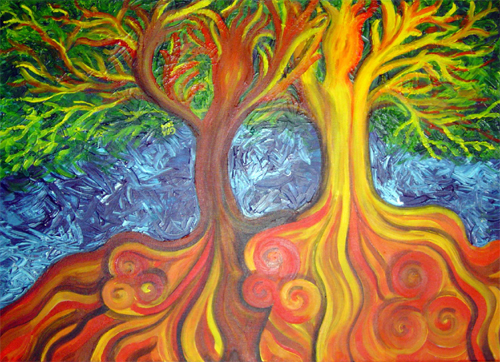
With ominous regularity, a citizen of the United States climbs upon a roof, or as in the past week, disguises himself as The Joker from Batman, to exact a toll for his own inescapable frustration paid for by the lives of others. James Holmes must surely have been unbalanced, but this doesn’t even begin to explain the killings in Aurora, Colorado.
Proceeding from the inside out, the most immediate reason making this madness possible is that almost anyone, in almost any state in the U.S., may purchase ammunition for an AK-47 in bulk, in this case probably acquired over the Internet.
This freedom of commerce is seemingly a genuine ingredient of American DNA. “My home is my castle” — as the saying goes, and in the United States this ingrained sentiment is carried to the extreme when you may legally riddle with bullets anyone who might enter your home in an unauthorized manner. These mass killers are frequently white, of Anglo-Germanic origin, and tend to be young. This tragic seed has flourished most strongly among the dominant majority.
One is wary of grand theories of all-encompassing explanation because they tend to leave nothing out. French sociologist Emmanuel Todd determined that the level of democracy that each Western European country achieves or may aspire to is related to the structures of domestic social power. Weber’s already well-worn theory of the supposed acquisitiveness shared by capitalism and Protestantism seems to have condemned Latin peoples to the outer shadows of worldly success, and unfortunately, many have believed this. A brilliant American historian, Frederick Jackson Turner, would have something to say, if not directly about these killings, at least about the access to the weapons that make them possible.
In 1920, F.J. Turner, a Harvard academic, put together a collection of essays, which was named after the most radical of them: “The Significance of the Frontier in American History”. He argued for the formative and essential character of the expansion of the country’s western frontier that, more or less, continued ceaselessly from the Atlantic to the Pacific, beginning in the eighteenth century until the end of the nineteenth. During this expansion the free possession of firearms was practically a universal right. The historian wrote that this moving target of a border constituted a “permanent return to primitive conditions,” and that, in contrast to what was occurring in Europe, where everything was already mapped, the American frontier bordered on the unknown and was a “meeting point between savagery and civilization.”
Three inventions from the Industrial Revolution have been especially dear to American literary and cinematographic mythology. The railroad found an extraordinary eulogist in the novels of Thomas Wolfe in the 1930s. The automobile was transformed by Jack Kerouac in “On the Road,” prefiguring the “road movie.” And personal firearms, both long and short, go back to James Fenimore Cooper and his Mohicans. The maximal degree of the revolver’s mythic-political exaltation is found in a film which, like our Don Juan, is shown every year on Spanish television: “Shane” — known in Spain as “Raíces Profundas” or “Deep Roots” (George Stevens, 1952) — in which the gunman-hero Alan Ladd justifies violence with the same conviction with which one recites a verse from the (Protestant) Bible: “A gun is as good or as bad as the man using it.” Howard Hawks would depict something similar in “Rio Bravo” (1959), but this time paying homage to the long gun, the rifle, which operates as an extension of John Wayne himself, because one day he discovered, “I found some were faster than me with a short gun.”
James Eagan Holmes, 24 years old, once first in his class, who last spring left the university where he was working on a doctorate in neurology, hasn’t murdered 12 people and gravely injured dozens more because there had been a western frontier that stayed open, according to Turner, until 1890. Nor because there exists an extremely powerful lobby, the National Rifle Association, of which the actor Charlton Heston was once president, which is excessively interested in maintaining a free market for firearms. And even less, because of those Western movies that teach that it is better to die than to kill, like “Ride the High Sierra” (Sam Peckinpah, 1962). The killing in Aurora, Colorado, has been solely a question of DNA.

Leave a Reply
You must be logged in to post a comment.